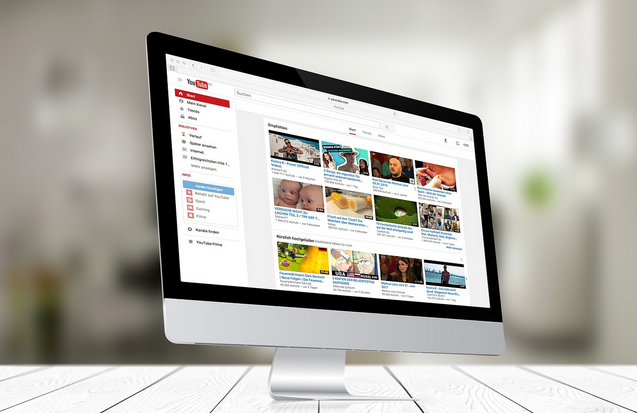Are you a YouTuber looking to take your content creation game to the next level? Getting sponsored on YouTube can be a great way to boost your income and gain exposure for your channel. However, it’s not as simple as just trying to buy Youtube subscribers from the USA and waiting for brand deals to come flooding in.
In this blog post, we’ll take you through the must-follow steps to getting sponsored on YouTube after you’ve bought subscribers. From creating quality content to negotiating deals with sponsors, we’ve got all the tips and tricks you need to thrive.
Create and Upload Quality Content

Creating and uploading quality content is essential to attracting sponsors on YouTube. Your videos should be unique, engaging, and relevant to your audience. Factor in what makes you stand out among other YouTubers in your niche and leverage that as the foundation of your content creation.
That should be from ensuring the quality of your videos, which you can try by investing in good equipment and great editing skill. This will help you produce professional-looking videos that stand out on YouTube.
Next, all you’ve got to do is to upload videos consistently. Creating high-quality, consistent, optimized content will attract more viewers – including potential sponsors who may want to work with you!
Grow Your Audience Number
While you keep consistently uploading quality content, do your best to grow your audience number. After all, without an engaged and growing audience, sponsors are unlikely to invest in your channel. But how? First off, be sure that the content shares the same value and expectation with your target audience while using keywords and phrases that relate to them and the industry.
Next, it’s time to cross-promote your channel to other social media platforms for more traffic generated to your channel. Then, it’s time to engage with other YouTubers for some cool collaboration.
Start Reaching Out to Relevant Sponsors
Once you have grown your audience and created quality content, the next step to getting sponsored on YouTube is to reach out to relevant sponsors. It’s important that you choose brands or companies that align with your niche and values as well as resonate with your viewers.
One effective way to find potential sponsors is by researching similar channels in your industry and seeing which brands they work with. Search for companies within your niche on social media platforms such as Twitter or LinkedIn. And then start reaching out.
Alternatively, many YouTube sponsorship platforms connect creators with relevant brands automatically based on their channel data. These platforms can streamline the process of finding sponsorships while also ensuring that both parties are an appropriate match.
Make Use of YouTube Sponsorship Platforms
 One of the surefire ways to get sponsored as a YouTube creator is by making use of YouTube sponsorship platforms. These are third-party websites that connect creators with potential sponsors looking for collaboration opportunities.
One of the surefire ways to get sponsored as a YouTube creator is by making use of YouTube sponsorship platforms. These are third-party websites that connect creators with potential sponsors looking for collaboration opportunities.
Some popular sponsorship platforms include FameBit, Grapevine, and BrandSnob. Once you sign up, the platform will match you with relevant brands based on your niche and target audience. You can then pitch your ideas to these brands or apply for their campaigns directly through the platform.
Negotiate and Seal the Deal
Congratulations! You’ve found your way to the last step. Once you have found a sponsor that fits your niche and audience, it’s time to negotiate the deal.
Before you start negotiating, make sure you have a strong, clear idea of what your channel is worth by factoring in your audience size, engagement rate, and content quality when determining your rates. Also, note that you need to outline the content you’ll create for them and how much you’ll get.…



 an appropriate advertising strategy in order to promote their goods and services. These professionals are typically employed either on a full-time or part-time basis by a consulting firm, or they can also be self-employed as a freelancer, offering their services to a wide variety of businesses around the region.
an appropriate advertising strategy in order to promote their goods and services. These professionals are typically employed either on a full-time or part-time basis by a consulting firm, or they can also be self-employed as a freelancer, offering their services to a wide variety of businesses around the region. A media consultant is typically also known as a marketing agent or an executive public relations officer who is involved in obtaining (often positive) forms of press coverage for particular business candidates or large corporations. A large part of this process involves drafting press releases, scheduling appointments and interviews as well as promoting the achievements of the individual or business via social media.
A media consultant is typically also known as a marketing agent or an executive public relations officer who is involved in obtaining (often positive) forms of press coverage for particular business candidates or large corporations. A large part of this process involves drafting press releases, scheduling appointments and interviews as well as promoting the achievements of the individual or business via social media. networking websites such as Facebook, Myspace, Twitter, Tumblr and even Google+.
networking websites such as Facebook, Myspace, Twitter, Tumblr and even Google+.